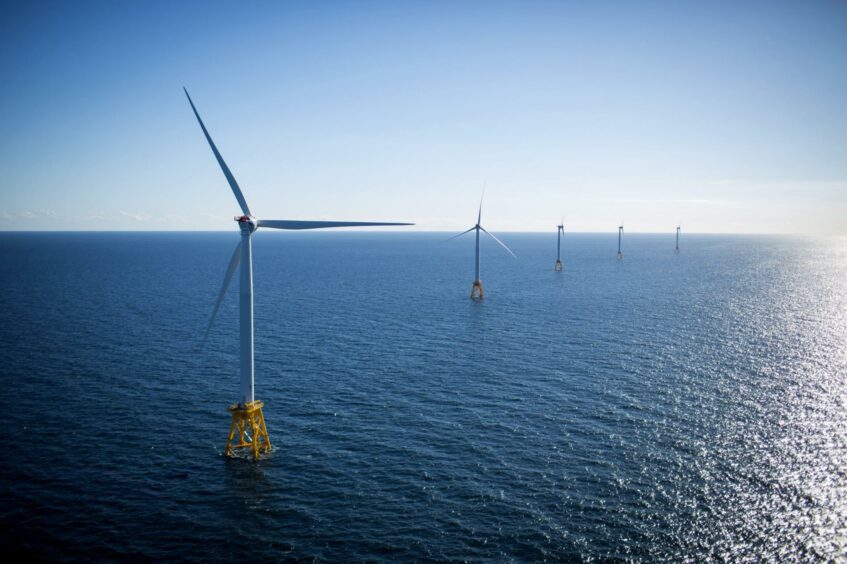
Nearly 3 gigawatts of offshore wind capacity could be imperiled if the US government imposes a 20-kilometer (12.4-mile) buffer zone blocking turbines in endangered whale foraging areas near Martha’s Vineyard, the American Clean Power Association said Wednesday.
The clean energy advocacy group said those potential restrictions — floated by US government scientists and endorsed by some conservationists — aren’t necessary based on limited existing scientific knowledge about the interaction between wind turbines and the marine ecosystems below the surface.
A white paper commissioned by the association concludes that climate change and natural variables — not the wind turbines — are likely to drive greater shifts in water movements and the density of tiny crustaceans that are a prime source of food for the North Atlantic right whale. A separate analysis published by the National Academies of Sciences, Engineering and Medicine last week cited significant uncertainty.
“This issue doesn’t warrant dramatically reducing the size of wind energy areas. It warrants further study,” said Josh Kaplowitz, the association’s vice president of offshore wind. “We can’t afford to delay offshore wind projects or threaten their viability each time uncertainty is raised.”
Kaplowitz pointed to a ruling by the Washington, DC-based federal circuit court concluding that government regulators can make decisions about endangered species impacts based on what is “likely” to occur, rather than “indulging in worst-case scenarios and pessimistic assumptions.”
The potential reduction represents about a tenth of President Joe Biden’s goal of deploying 30 gigawatts of offshore wind capacity by the end of the decade, further challenging ambitions already under pressure from rising costs and supply-chain woes.
The proposed Nantucket Shoals buffer zone could have an impact on several potential offshore wind projects, including Equinor and BP’s Beacon Wind, and SouthCoast, backed by Shell New Energies US and Ocean Winds.
Recommended for you
